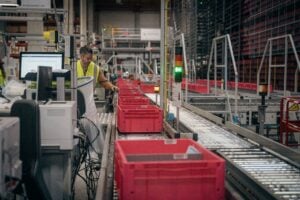General Atomics has announced a CA$20 million (US$14.51), ten-year investment in Fusion Fuel Cycles, Inc. (FFC), a Canadian joint venture formed by Canadian Nuclear Laboratories (CNL) and Kyoto Fusioneering. The partnership will support the development of UNITY-2, a test facility dedicated to advancing the tritium fuel cycle, considered one of the most challenging but vital aspects of commercial fusion energy.
Scheduled to begin operations in mid-2026, UNITY-2 will be located at CNL in Ontario. It is set to become the world’s first fully integrated facility designed to test the complete deuterium-tritium (D-T) fuel cycle. This system is crucial for any practical fusion power plant, which must combine plasma confinement, an energy-absorbing blanket system, a fuel cycle to recover tritium, and a heat-to-electricity conversion process.
Fusion, the process that powers the sun, is regarded as a potential near-limitless and sustainable source of energy. UNITY-2 aims to simulate the full D-T sequence, including tritium discharge, purification and resupply. The project will address safety, storage and management challenges associated with tritium, laying groundwork for the eventual development of other large-scale fusion technologies, including blanket component testing.
General Atomics will use UNITY-2’s advanced infrastructure for its own research and development, while supporting Canadian partners in tackling the complex science of fuel cycle integration. According to General Atomics executives, the initiative represents a direct step towards solving one of the hardest puzzles in making fusion commercially viable: ensuring all subsystems work in harmony.
The investment also aligns with Canada’s Industrial and Technological Benefits (ITB) Policy, linked to General Atomics Aeronautical Systems’ contracts for supplying MQ-9B SkyGuardian remotely piloted aircraft to the Canadian government. Canada’s Federal Department for Innovation, Science and Economic Development has formally endorsed UNITY-2, highlighting its role in advancing green energy innovation.
The Canadian government has welcomed the project, describing it as an opportunity to strengthen Canada’s role in the global fusion sector while creating high-value jobs and new economic opportunities. If successful, UNITY-2 could help position Canada as a leader in the international race to develop sustainable fusion technologies.
































